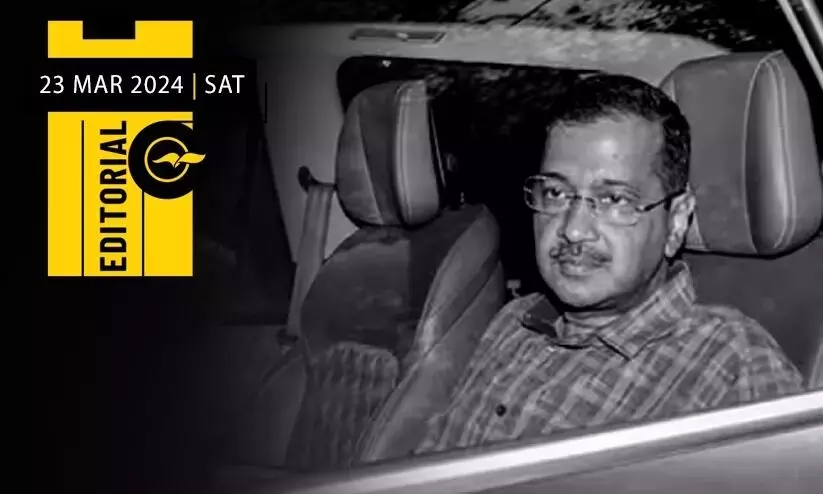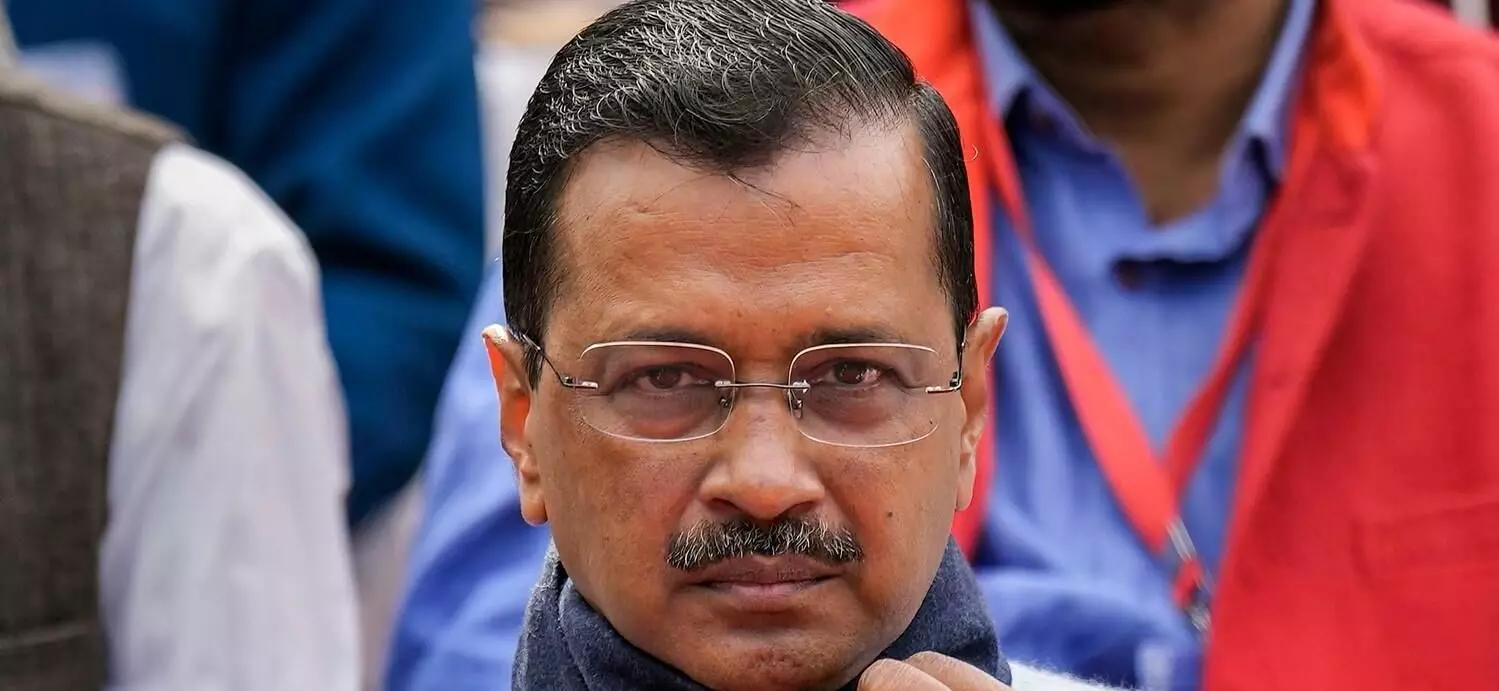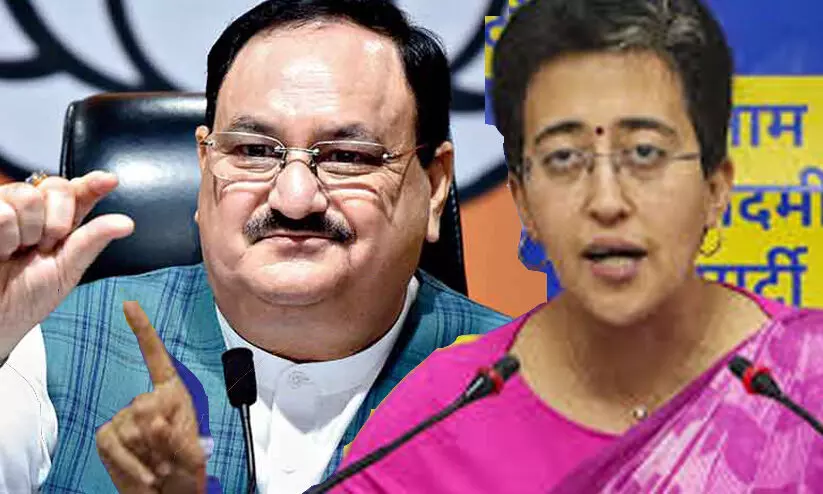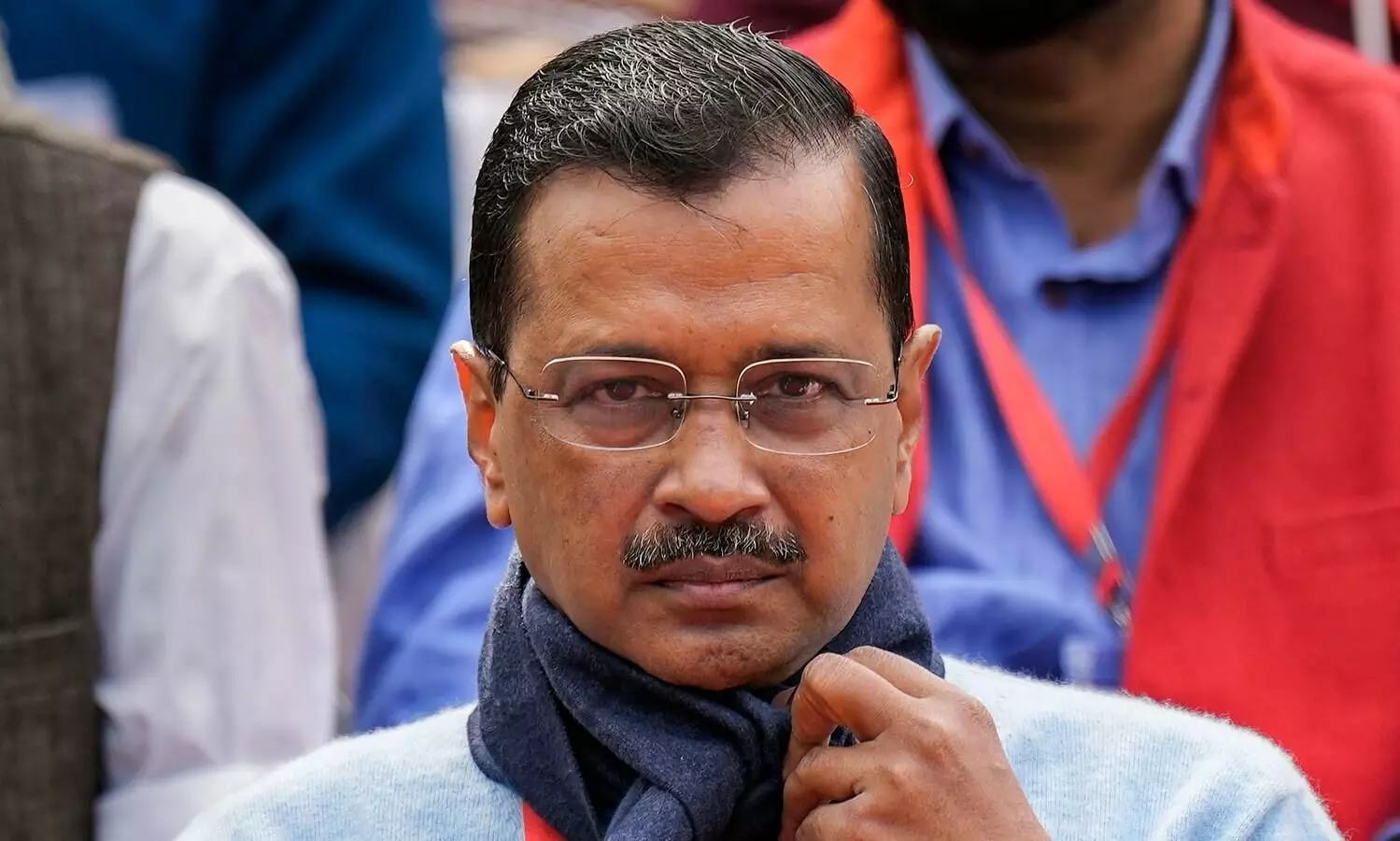
A witchhunt, plain and simple
text_fieldsDespite some anomalies in some steps in the Enforcement Directorate's act arresting Kejriwal, they had been anticipated for some time. Rumours of the arrest had been circulating since the first week of January. A few days earlier, when K. Kavitha, the daughter of former Telangana Chief Minister Chandrasekhar Rao and BRS leader, was arrested, there were hints that Kejriwal would soon face a similar fate. With the High Court refusing to grant protection to Kejriwal, who had consistently ignored ED summons, it became only a matter of time. AT night the other day, after an extraordinary and dramatic turn of events, the central investigation team acted. They entered Kejriwal's residence with a search warrant, informing the staff that they would issue fresh summons in the case. The arrest occurred after the team, accompanied by a large police contingent, entered the residence, seized the phones and laptops of Kejriwal and his wife, copied the data and then recorded his arrest.
Kejriwal is the first Chief Minister to be arrested while in office. The Aam Aadmi Party has decided to handle the matter both politically and legally. Consequently, right after the news of the arrest broke, party workers took to the streets, leading to massive protests witnessed in the national capital last night. It is expected that these protests will spread across the country in the coming days. The party has approached the Supreme Court against the actions of the ED. Regardless of the outcome, Kejriwal announced that the government would be run from jail. Most opposition parties have expressed their solidarity with him. In essence, the arrest and related incidents, in the wake of the announcement of the general elections in the country, have opened up a new war front.
The recent unearthing of the Delhi liquor policy case, involving the role of central investigative agencies like the CBI and ED, has unequivocally revealed the extent of alacrity of the Modi government. This represents the continuation of retaliatory actions by the central government's autocratic rule and anti-federal actions against states governed by opposition parties. Imposing sanctions by withholding rightful financial allocations to opposition-run states, paving the way for Central agencies to intervene in those states, and creating parallel governance through gubernatorial appointments to put state administrations in limbo have all been part of the pattern evolved by the Centre since the Modi government assumed power. The arrest of Kejriwal is a continuation of this retaliatory politics. Even the reason for the arrest, linked to the liquor policy case, was formed after the governor's intervention.
When allegations arose that the government had violated the law by amending the liquor policy to allow private participation in liquor production and distribution, thereby generating a huge amount for the AAP, the governor lost no time in calling in the CBI. Kejriwal had predicted his arrest even when Deputy Chief Minister Manish Sisodia was arrested in the initial stages of the investigation. His words have been proven correct - that the Modi government had prepared a list to arrest opposition leaders using central investigative agencies. The arrest of Jharkhand Chief Minister Hemant Soren was also made using the same modus operandi. The only difference is that he was able to resign before the arrest.
It is significant that Kejriwal, a prominent face of the INDIA front, was arrested a day after the first phase of filing nominations for the Lok Sabha elections began. On the same day, another incident happened in the capital city: hours before Kejriwal's arrest, Sonia and Rahul, along with Congress President Kharge, had informed in a press meeting that the freezing of 11 accounts belonging to four banks affiliated with the Congress Party by the Income Tax had made the party bankrupt in the elections. Both events highlight the Modi administration's excessive use of power! The Sangh Parivar has been pursuing an agenda to eliminate opposition voices from directly contesting elections. There is doubt whether this exercise of unchecked power stems from fear, particularly after encountering some challenges from the opposition, despite their repeated claims of returning to power for the third time with over 370 seats. With the alliance of the Congress and AAP, the saffron party finds itself out of the picture in Delhi, where it had made a landslide in 2019. Perhaps the AAP wave can also make an impact in Punjab. However, the prospects look far from bright for the BJP in South India. In the Hindi heartland, the INDIA bloc continues to make some strides despite some weaknesses. At this juncture, the Sangh Parivar has been employing heinous strategies to strike at even the slightest actions of INDIA partners. Therefore, it is to be expected that financial sanctions and arrests will continue in the coming days. What is happening here is nothing but the hounding of democracy by a fascist regime.

























